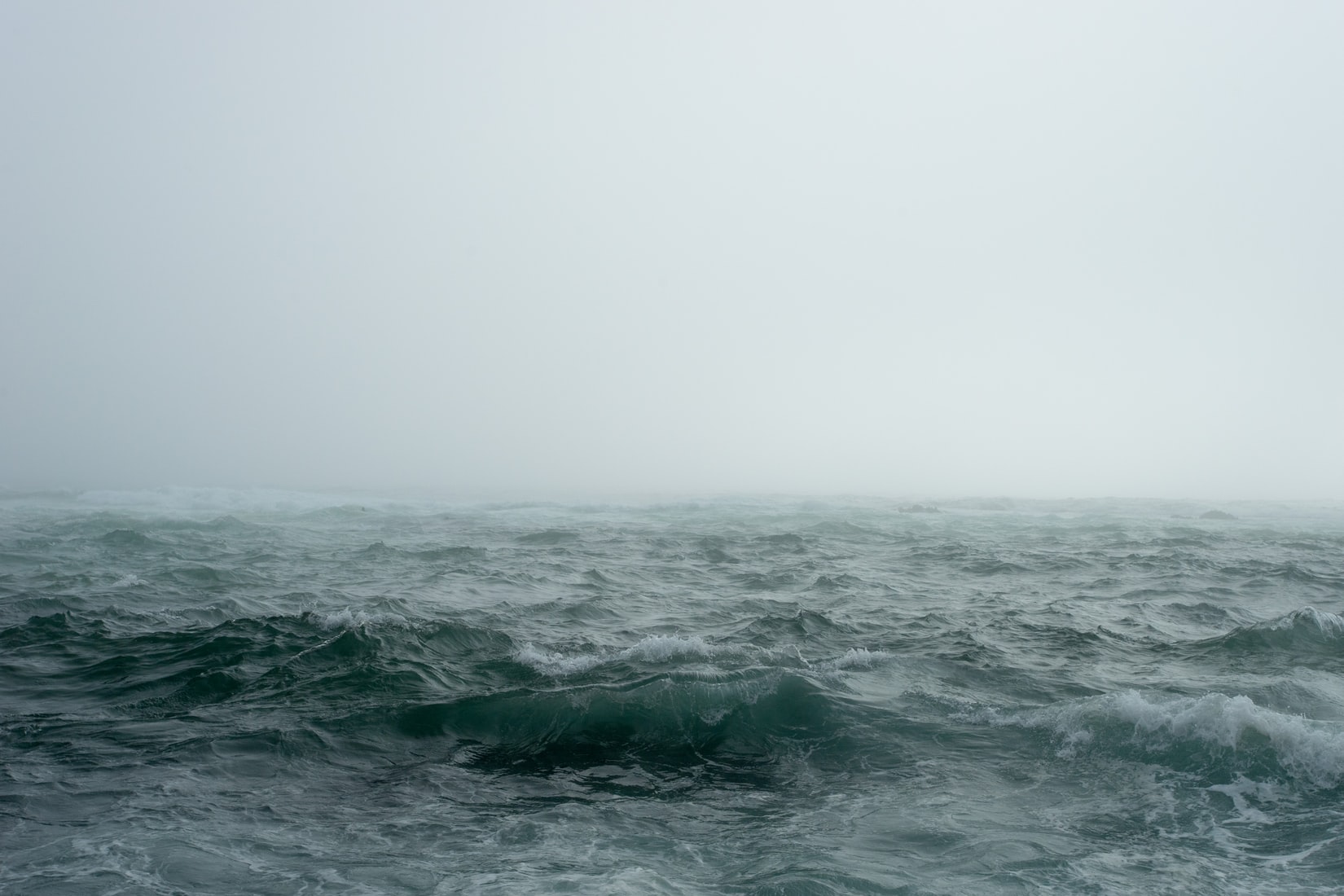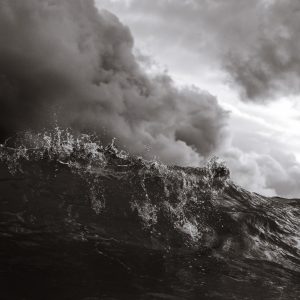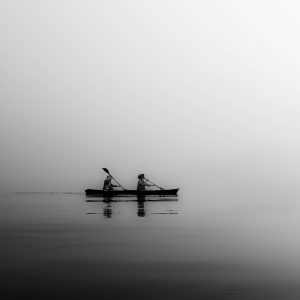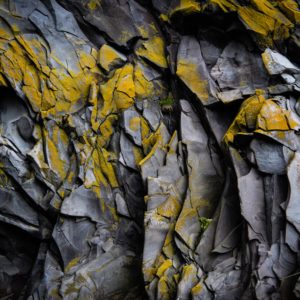Simmons had already chewed through half a boot tongue before Carver dropped dead. In another life, he might’ve bent low, weeping, to kiss Carver’s cracked lips, unconcerned with how the rest of the Jupiter’s dwindling crew interpreted the gesture (whatever they might have imagined would’ve been correct). In this life, though, the men were ravenous, and Carver had lain himself out in the snow like a banquet.
They wasted seven minutes on objections, mining their souls for a scrap of civilization that hadn’t yet been shaken loose and scattered by Arctic winds. Diggle went so far as to wretch, though there was nothing for his belly to void.
The pretense concluded, they built a fire.
Willoughby said the rump would have the tastiest meat. Simmons proposed the thigh, and shouldn’t he know, ship’s cook and all. Anyway, Carver hadn’t a rump left to speak of, not after a year on three-quarters rations followed by a week on half that and then, when they’d emptied the last tomato tin, five days with nothing to eat but fistfuls of snow.
In the end, they sampled bits from all over Carver: thigh, rump, cheek, foot, brain. Willoughby had even gone for the cock, but Captain Reynolds balked, and even out on the ice the men hadn’t the heart for mutiny. When they’d sated themselves, they wound Carver’s corpse in a muslin shroud to cover their shame and set it far enough from camp to ignore.
Simmons couldn’t ignore it. While the other men slept, he genuflected at the corpse’s feet and prayed for forgiveness, not to God but to Carver. Even when he’d returned to the safety of the fire, he willed the stars into a constellation that took the shape of Carver’s fine features and whispered more apologies to that. It was too cold to cry tears, but he wrenched his eyes shut and tried anyway.
When he opened them, a shadow was moving in the distance, something hulking and solid that Simmons at first thought might be a polar bear, but it rolled and roiled like no animal he could identify. It ambled right up to Carver’s body then edged forward, tumbling over its length like a steamroller. Simmons tried to call out but found his jaw locked fast against a scream.
Twenty feet to his right, Diggle, Willoughby, and Captain Reynolds pupated together in a chrysalis of furs and felts. None stirred, even as this thing lurched ever closer. The campfire burned brighter for its nearness. It was no animal at all though unmistakably organic. It dwarfed Simmons; it would have dwarfed any man. Its body, if one could call it that, was a globe of hairless flesh webbed by a wild maze of veins. The flesh was translucent, and in the fire’s glow he could see dark, shifting shapes within prodding at their confines, stretching the thing’s walls to their limits before sinking back into its core.
And then it spoke.
Don’t be sorry, it whispered, and the voice that came from it was Carver’s voice, but not only. Others droned beneath it, masculine and feminine and neither, some perhaps inhuman. I’m glad to have been of some use.
“Didn’t you want to live?” Bile bubbled in Simmons’ throat, laced with the flavor of roasted meat.
It’s warmer in here.
He saw now the glistening path it had made across the ground. At first he mistook it for something like the slime trail of a slug but then realized what it was: melt. The heat this thing gave off had thawed the ice.
Simmons sniggered. “Where were you while the pack ice hemmed us in all year?”
Waiting. The answer came in a tangle of tongues. Simmons understood them all. The muscles of his back tensed, as if knuckles had grazed the skin there too suddenly.
Carver’s voice rose over the din once more. Come, my darling.
From beneath the flesh, a hand-shaped shadow pressed toward him. He recoiled, and it pulled away again, bobbing, crunching the snow beneath it.
“Captain says six days to the outpost, maybe seven. We’re not far.”
The thing pulsed gently, regarding him in its alien way, before trundling back into the darkness.
Simmons didn’t sleep. Captain Reynolds didn’t wake.
“We could butcher him, too,” said Willoughby, flinching at his own impiety.
“Plenty of meat left on Carver,” said Simmons. “The cold will have kept it fresh.” He wanted to make quick, unsentimental work of any butchering that needed doing before they set out; he’d taken pleasure from Carver’s body, but it was Carver he’d loved, and Carver wasn’t in it.
But nor was the body inside the shroud. Simmons knew this before even bending to unwind it. The bundle that should’ve been Carver lay limp and sagging, and when he pulled back the muslin, nothing remained within but bone.
“Probably a bear got to him,” said Diggle, but the bones had been stripped clean, as if boiled.
In the end, Simmons did cleave both shanks from Captain Reynolds, which he wrapped carefully for later, and carved some strips of loin for the men to gnaw and suckle on their trek.
None of them knew the way to the outpost, not really. They had a compass to point them south and a red circle on a faded map, but the Jupiter’s final bearings had only ever been guessed at and besides, Simmons was just a cook, the other two common seamen. They kept on anyway.
In the far distance, mountain peaks jutted from the ground at sharp, peculiar angles, like shards of weapons flung from Heaven. They knew the sun only by the soft orange haze it made of the clouds that obscured it. By the time it began to set, Willoughby’s heart had given out. Diggle recited a half-remembered psalm, but there was too much ground to cover before nightfall, so Simmons urged him onward.
They managed only a meager fire that night; someone had carelessly repacked the wood, and it had taken on moisture from the snow. Simmons picked at one of the Captain’s shanks, but Diggle claimed he had no appetite and drifted off to sleep without supper.
Simmons fought sleep, no matter how prettily it beckoned. He called to mind his very first expedition, as ship’s boy on the Nereid’s voyage to Pitcairn Island. The rain there had fallen hard enough to bruise his skin, but it was warm. He tried to imagine that heat enveloping him now. He brushed it over his limbs like a varnish that could shield him from the cold.
And suddenly he did feel warmer. It had nothing to do with the memory but what hovered, unmoving, on his periphery. He didn’t dare look at it head on.
I took a bullet in that shank, you know.
“Thought so, Captain. Scar tissue in the muscle. I had to slice around it.”
You were one of the better cooks I ever sailed with.
“Kind of you to say so, sir,”
I can’t believe I never cottoned on. You and Carver. I had a friend like that once, too, in my merchant service days. It’s hungry work, sailing. The flesh deserves some reward.
Simmons reddened, swallowed hard. His throat was full of knives. He tasted blood on the back of his tongue. “Is that how it goes in there? You know everything now?”
Not everything, came Carver’s voice.
But you know enough, chimed Willoughby’s.
The important things, added the Captain’s.
Shudders racked Simmons’ body so violently he thought he might break a rib.
“You’ll follow us south?”
To the end, answered all three men. For now, sleep.
He did, finally.
When he woke, Diggle knelt beside him, clutching Simmons’ trusty cleaver in steady hands. Simmons jumped back in alarm, but Diggle made no move to strike. Instead he smiled and offered the cleaver over.
“Wouldn’t be so different from a pig. Give us the mercy of a quick death, won’t you? Either way, I’ll not be pressing on.”
Climbing shakily to his feet, Simmons eyed the implement. Captain Reynolds’ blood still darkened most of the blade, but the cleaner bits gleamed, reflecting white. He gripped the cleaver in his right hand and wound the left through Diggle’s brown curls. Difficult to find a point to strike under so many layers of protective warmth, but yanking the man’s head to one side, there it was, a pink petal of exposed neck.
He carried Diggle’s head south with him, the curls clutched still in one trembling fist, blood dripping a vibrant trail across the snow.
He’d been walking most of the day before he heard the crunch of snow behind him, though all along he’d known what trailed him. If he turned, he might see the thing blowing toward him like a tumbleweed, steady in its approach, unhurried. There’d be no threat from it, only promise. Still, he kept his eyes forward.
You haven’t even taken out the map, said the chorus of voices; he would have sworn he heard Diggle’s now in that mélange. What’s happened to your compass?
Simmons laughed in answer, madness in it.
Why are you walking at all?
“I don’t want to die.”
The voices only breathed into the quiet with all the patience of eternity. How short his own life would be, if he even made it to the outpost. He imagined the brief, ugly years that waited, nights given over to dreams of dead men in the frozen north, days reserved for – what? More sailing, porridge and salt pork and vats of greasy burgoo, waiting for a shipwreck or a pox or a knife or, in the kitchen of some salt-beaten tavern, to finally trip face first into a pot of boiling clams.
The thing had drawn close enough to kiss him with its heat. He had a mighty urge to let it close the distance and then to lay himself against its body and let it rock him like a wave. It wouldn’t rock him, though, would it? He’d seen what thorough work it had made of Carver’s body. It must have done the same with Diggle’s and Willoughby’s and the Captain’s too.
What he truly wanted was to reach inside and pluck Carver free.
You’d have me die twice in the cold?
“We’d find our way. We’d make it all count for something.”
We’d die.
“We wouldn’t be alone.”
In response came Carver’s teasing chuckle. Simmons blessed whatever magic had preserved it.
We aren’t alone now.
It was night. Shouldn’t he have noticed the sunset? How long had he been walking blindly toward nothing?
Mountain shadows loomed on the horizon. Before him, the ground stretched on and on and spilled into the stars.
The heat thrummed against his back. Under his feet, the ground began to sink, ice turning to water that seeped through the ragged soles of his boots. He was surprised to find he still had hold of Diggle’s head. The flesh of the man’s face sagged away from the bone now as it thawed and then melted, curls disintegrating between Simmons’ fingers.
Simmons was melting, too.
The thing pressed into him, pulling him out of himself, into its warmth, and the warmth smelled like his father’s pipe and the rainy season on Pitcairn Island and Carver’s spunk and the last stew he’d eaten and the tender crook of his own unwashed arm.
Where was that arm now?
Forgotten, flesh and sinew dissolved, bones bleached to match the snow. What remained of Simmons would remain in this new vessel – with Diggle, with Willoughby, with Captain Reynolds, with Carver, with the whole crew of their ship and all the ships that came before, with Inuit seal hunters and hunted seals, with caribou and bears and little foxes and even mammoths, with creatures he could not name, with things that lived and died before naming, every I become a We. Together they rolled on across the land, leaving the bones for someone else to find, or for time to forget.




